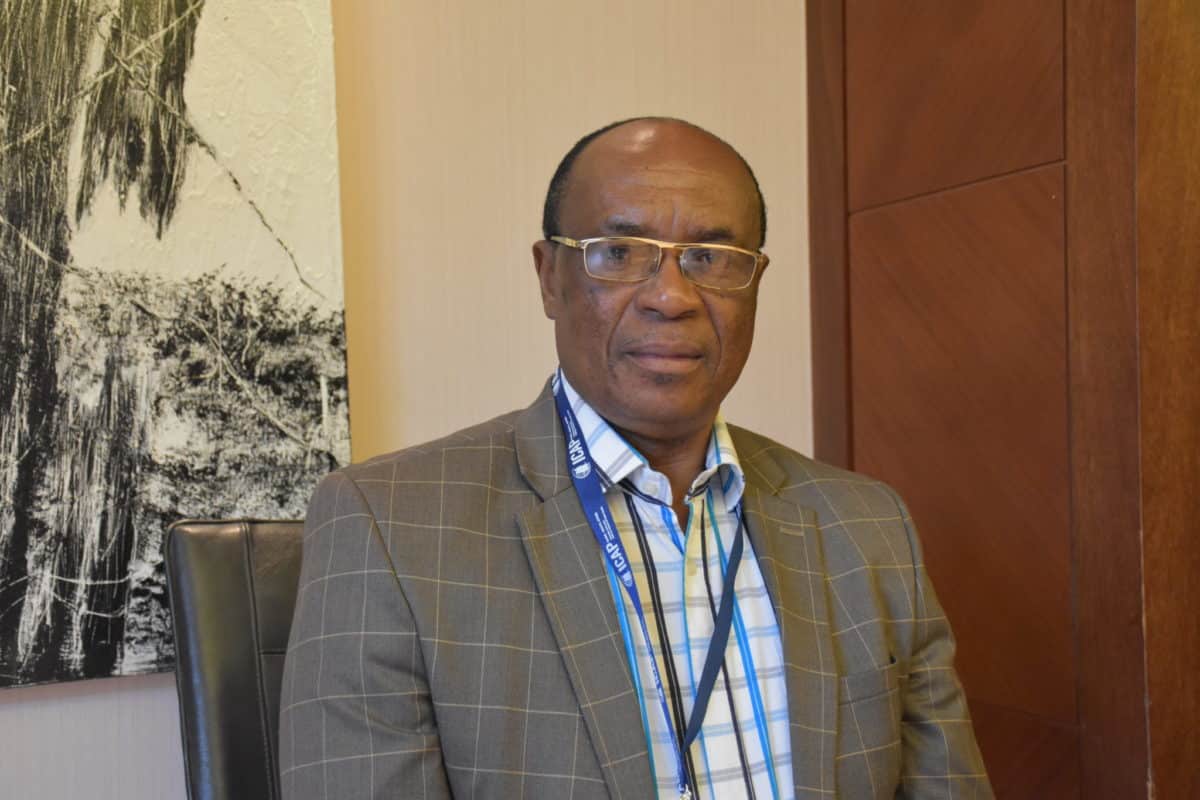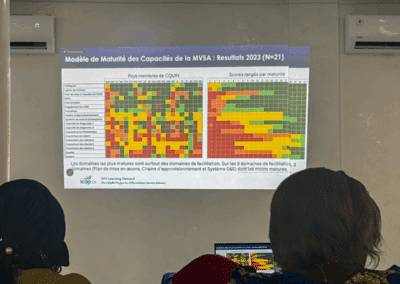Luc-Ferdinand Kamanga Lukusa, MD, is the Director of the National AIDS Control Program in the Democratic Republic of Congo (DRC). In November 2019, Dr. Kamanga attended the third annual CQUIN meeting in Johannesburg, South Africa. DRC joined CQUIN in September 2019, expanding the experience and country-expertise in this collaborative forum.
For Dr. Kamanga, attending his first CQUIN meeting provided an opportunity to take stock of DRC’s current DSD efforts, and to explain his aspirations for greater efficiency and improved quality of HIV service delivery.
Can you tell me a little bit about your role and background?
LKL: I am the National Director of the HIV Program in the DRC. I am a pediatrician and pediatric HIV specialist by training, and I bring this lens to my work, considering the HIV service needs of all people, particularly priority populations, such as adolescents living with HIV.
What are your impressions of your first CQUIN meeting?
LKL: It is truly great to be here, and to be learning from so many experts in DSD. I think that CQUIN is a great opportunity for DRC to learn new methods of service delivery, and new ways of helping recipients of care. We are glad to have the opportunity to learn and take back this knowledge, advancing the DSD programs we currently have in place.
For countries with limited resources such as DRC, it’s a good thing to strive for efficiency in our work with recipients of HIV care.
Why is DSD a priority for DRC?
LKL: Because DRC is such a large country, our health systems can tend to be overburdened, with long wait lines and overcrowding. As of last year, we have already started a DSD strategy, but we are still in the beginning efforts. Though progress has been made—particularly in reducing wait times in some clinics—challenges remain.
In our early stages, DRC is only implementing DSD in two regions. DRC is a very large country, with 26 regions in total, thus we anticipate taking DSD to scale will prove challenging. To stay ahead, we are coordinating a task force to outline a DSD strategy, maximizing and streamlining our response after this meeting. We hope by coordinating our efforts, that we will be able to better serve people living with HIV.
Are there any sessions or key learnings from this meeting that stand out to you so far?
LKL: Oh! Many lessons.
The first is that community engagement is essential, especially if you want to create programs that are effective and efficient! The community must be involved from the start.
The second is the Fast Track refill model, and how to manage fast-tracking ART refills for recipients of care. I believe this model could be a good fit for many clinics in DRC, especially for people who live far from health facilities.
These are two big lessons we have learned here, and key learnings that we would like to take back to DRC.
Coming here has also reinforced to me that representatives from DRC must continue to be present at CQUIN meetings, workshops, and convenings because there is so much knowledge to extract from this network. Taking back these lessons not only enriches our understanding of providing better care, but can impact the health and wellbeing of many people.






